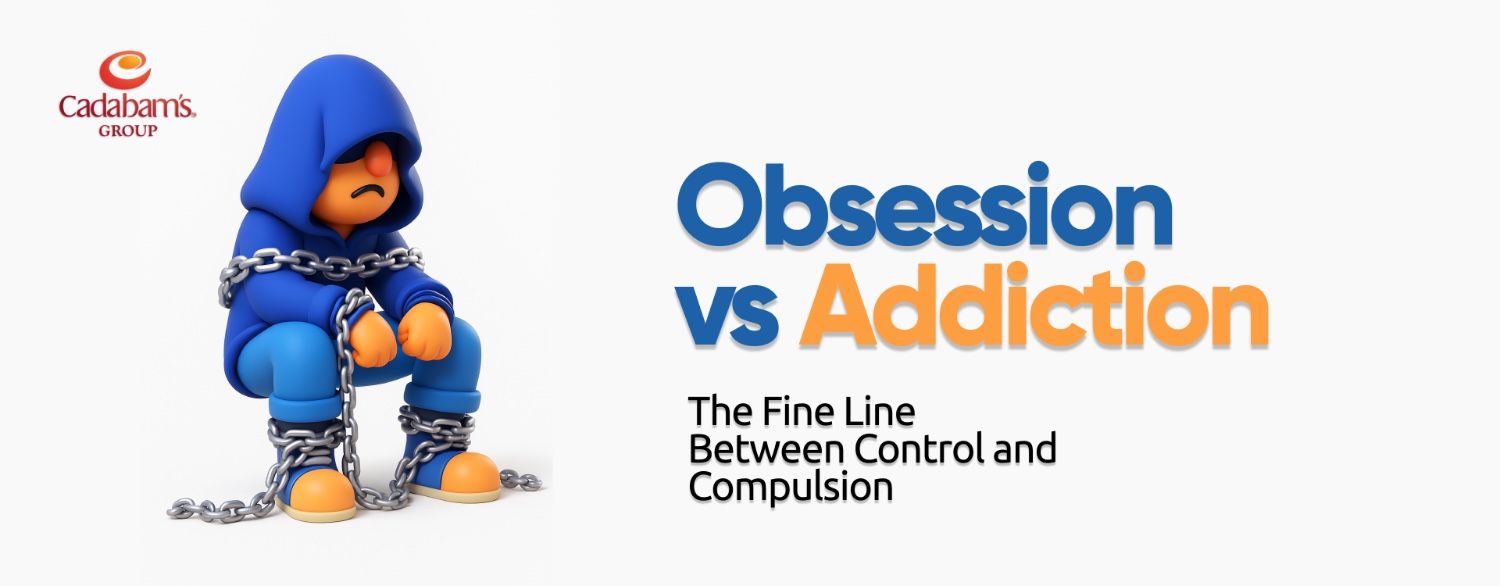Does the thought of a messy desk send shivers down your spine? Do you find yourself constantly checking to see if the door is locked? If so, many others also share similar challenges. Welcome to the world of OCD, where intrusive thoughts and repetitive behaviors can feel overwhelming. This blog explores the realities, struggles, and triumphs of living with OCD, offering support and hope for a calmer and more manageable future.
What Are the Most Effective Treatments for OCD?
OCD experiences vary, but effective treatment pathways exist. We explore the most evidence-based therapies endorsed by mental health professionals, empowering individuals with OCD to navigate their path toward recovery. Discover the treatment options recommended by experts to help you regain control and manage your OCD.
What is Cognitive Behavioural Therapy (CBT)
Cognitive behavioral therapy (CBT) is a highly successful treatment for OCD. Let's look at the fundamental ideas of CBT and how they can help people with OCD improve their relationships with intrusive thoughts and obsessive behaviors.
How CBT Works for OCD
CBT for OCD addresses the underlying cause by identifying triggers and related intrusive thoughts or environmental cues. Once these are identified, therapy assists individuals in challenging the veracity and usefulness of their thoughts. Individuals acquire control over their responses by replacing them with more realistic and balanced viewpoints, thus reducing the strength of OCD.
Techniques Used in Cognitive Behavioural Therapy for OCD
Understanding CBT's fundamental ideas is critical. However, truly participating in rehabilitation necessitates diving further into its specialized procedures. Exploring various strategies, such as exposure treatment and relaxation exercises, enables you to actively manage your OCD. Let's take a look at these resources to help you on your path to long-term wellness.
Exposure and Response Prevention Therapy (ERP)
Exposure and Response Prevention (ERP) is an important CBT approach for OCD. It progressively exposes people to their dreaded circumstances or items, stopping them from indulging in compulsions. This recurrent exposure helps people manage the anxiety that comes with these triggers, eventually lowering their intensity and decreasing their influence over the individual.
Deep Breathing Exercises
CBT provides individuals with methods to control anxiety, such as deep breathing exercises. Individuals can moderate their bodily response to anxiety by taking steady, regulated breaths. This helps people relax their nervous system and regain control during times of hardship, boosting general well-being.
Progressive Muscle Relaxation
CBT uses strategies such as progressive muscle relaxation to overcome anxiety. This entails carefully contracting and releasing various muscle groups. This approach induces profound relaxation and alleviates physical pain, which is frequently related to worry. Finally, it enables people to better control their stress and enhance their general well-being.
Cognitive Restructuring
CBT tackles the core of OCD by addressing the underlying thought patterns. Through cognitive restructuring, individuals learn to identify and challenge negative, unhelpful thoughts linked to their obsessions and compulsions. By replacing them with more realistic and balanced perspectives, they gain control over their thought processes. This shift empowers them to manage anxiety more effectively and break the cycle of OCD, fostering lasting well-being.
Is Cognitive Behavioural Therapy for OCD Effective?
CBT addresses the underlying cognitive processes that cause OCD. Individuals who undergo cognitive restructuring learn to recognize and fight negative, unhelpful ideas associated with their obsessions and compulsions. They regain control of their cognitive processes by replacing them with more realistic and balanced viewpoints. This transformation enables people to better manage anxiety and end the cycle of OCD, promoting long-term well-being.
Risks associated with CBT for OCD
While typically safe, CBT may produce some momentary pain. Identifying triggers and fighting compulsions can be difficult, leading to greater anxiety. However, a qualified therapist can help control and progressively diminish these fears. They walk you through these difficulties, providing a secure and supportive setting for your road to controlling OCD.
Duration of CBT treatment
The length of CBT for OCD is determined by your individual needs and symptom intensity. It typically consists of weekly sessions that last 1-2 months but may be extended in difficult circumstances. Consistency and devotion are critical. Your therapist will design the duration so that you learn the required skills and see long-term progress in controlling your OCD.
Maximising CBT's Effectiveness for OCD
Increase the efficacy of your CBT by actively engaging in sessions, consistently practicing the coping strategies you learn, and keeping open contact with your therapist. In addition, seek assistance from loved ones and pursue a healthy lifestyle for your general well-being. These aspects, when combined, can dramatically improve your recovery with CBT.
Empowering Your Journey with CBT for OCD with Cadabams
Cadabams recognizes the unique challenges of OCD and offers compassionate, personalized CBT tailored to you. Our experienced therapists walk alongside you, empowering you with the tools to manage OCD and achieve long-term well-being. We provide a safe space to discuss your struggles and equip you with proven coping skills like relaxation techniques and exposure therapy. Contact Cadabams today to learn how we can help you reclaim your life from OCD.
If you are searching for a solution to your problem, Cadabam’s Rehabilitation Centre can help you with its team of specialized experts. We have been helping thousands of people live healthier and happier lives for 30+ years. We leverage evidence-based approaches and holistic treatment methods to help individuals effectively manage their OCD. Get in touch with us today. You can call us at +91 96111 94949.
FAQs
1. How successful is CBT in treating OCD?
CBT is widely recognized as the most effective standard treatment for OCD, with numerous studies demonstrating significant improvements in reducing symptoms and promoting overall well-being.
2. How can I practice CBT at home for OCD?
Although seeking professional guidance is always recommended, there are ways to practice CBT at home. This can involve:
- Identifying triggers: Recognizing situations, objects, or even thoughts that spark your obsessions and compulsions.
- Challenging negative thoughts: Questioning the accuracy and helpfulness of these thoughts and replacing them with more realistic and balanced perspectives.
- Using relaxation techniques: Techniques like deep breathing and progressive muscle relaxation can help manage anxiety in the moment.
3. What are some coping skills for OCD?
Several techniques can promote calmness and reduce anxiety associated with OCD, including:
- Deep breathing exercises: Focusing on slow, controlled breaths helps regulate your physical response to anxiety.
- Mindfulness practices: Paying attention to the present moment without judgment can help reduce stress and improve emotional regulation.
- Progressive muscle relaxation: Gradually tensing and relaxing different muscle groups in the body can release physical tension and encourage relaxation.
4. How long does CBT take to cure OCD?
CBT is a management technique, not a "cure." The duration varies according to individual needs, with weekly sessions lasting 1-2 months and sometimes extending in difficult circumstances. Long-term progress requires consistency and dedication.
5. What are calming techniques for OCD?
Calming techniques for OCD include mindfulness meditation, deep breathing exercises, progressive muscle relaxation, and visualization. Engaging in hobbies or activities that promote relaxation, such as yoga or gardening, can also be beneficial. Cognitive-behavioral therapy (CBT) techniques, such as exposure and response prevention (ERP), can help manage OCD symptoms by gradually exposing oneself to triggers while refraining from compulsive behaviors.
.webp)







